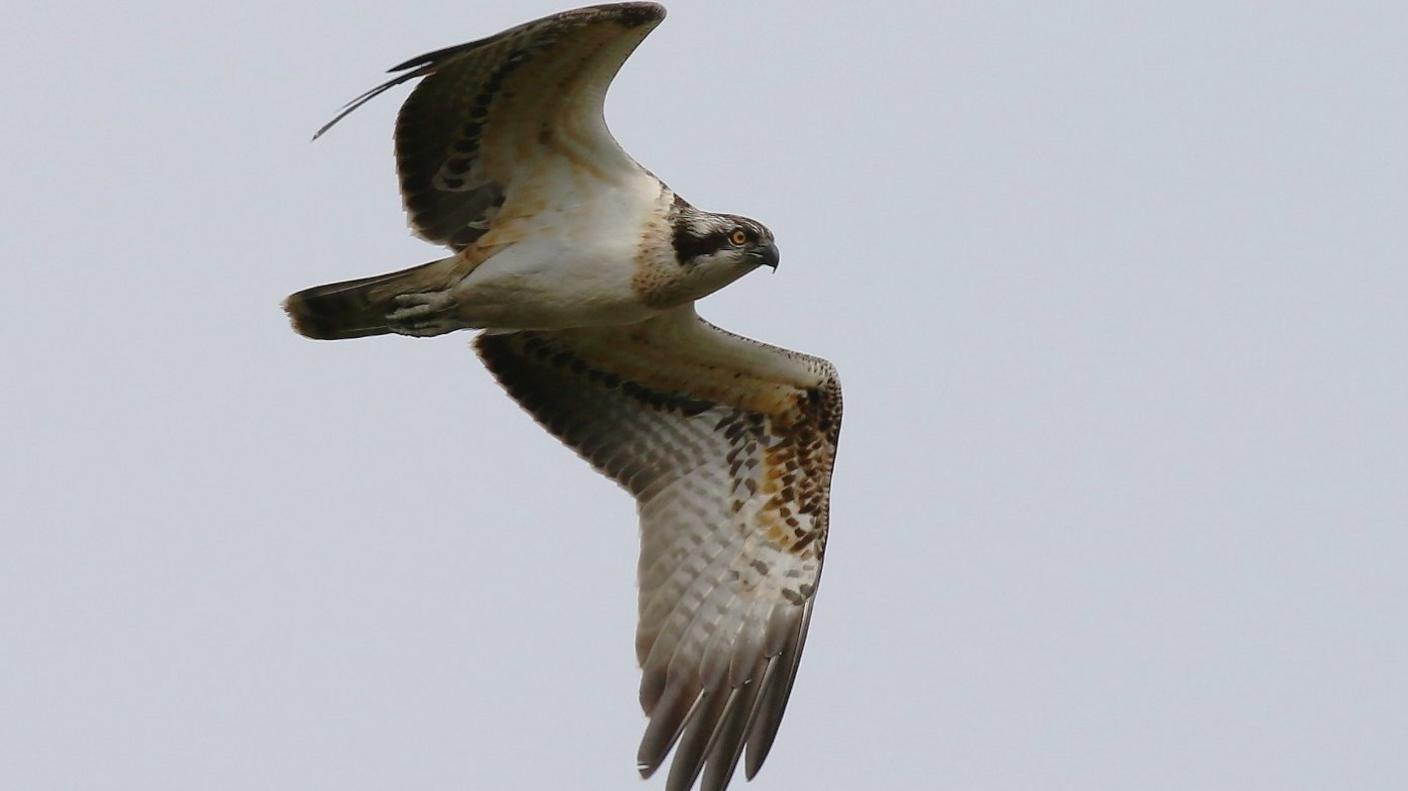Osprey chick takes flight in 'milestone' moment
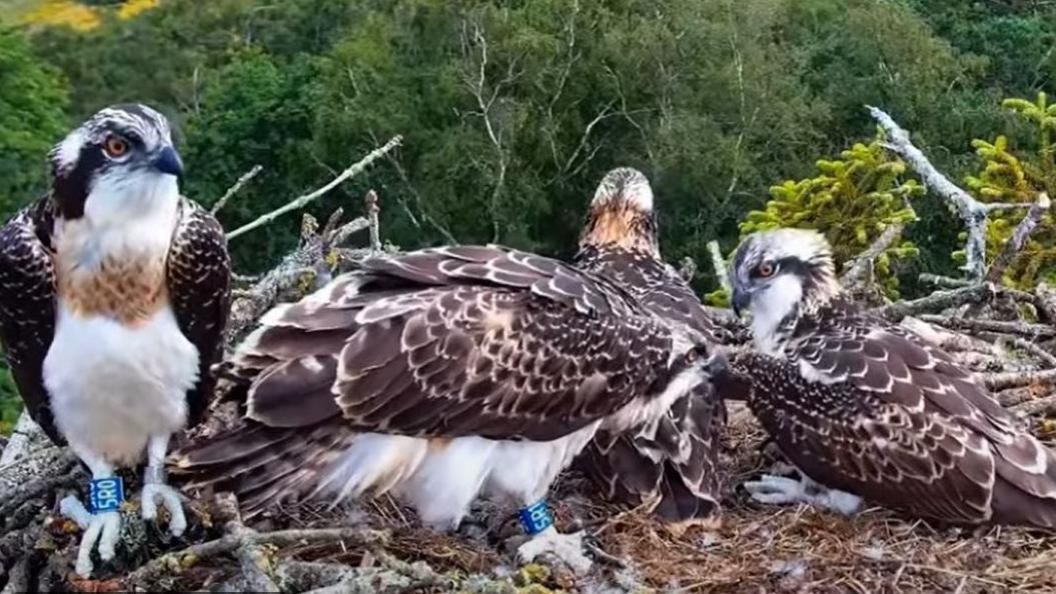
The latest fledgling (left), known as 5R0, flew to a nearby tree on Sunday
- Published
The nest of the only breeding pair of ospreys on England's south coast has seen a new generation of chicks start to take flight.
A reintroduction programme began in Poole Harbour in 2017 with the long-term aim of establishing a breeding population.
The latest fledgling, known as 5R0, flew to a nearby tree on Sunday morning.
The Birds of Poole Harbour charity described it as a "significant milestone in this year's story", and said it expected all four chicks in the nest to fledge in the coming week.
The chicks' parents - CJ7 and 022 - first met in the summer of 2021, although the male was too young to breed.
But they were to become the first known ospreys to breed in southern England since 1847. The first egg was spotted in April 2022, giving naturalist Chris Packham cause for celebration. The first chick hatched in June 2022.
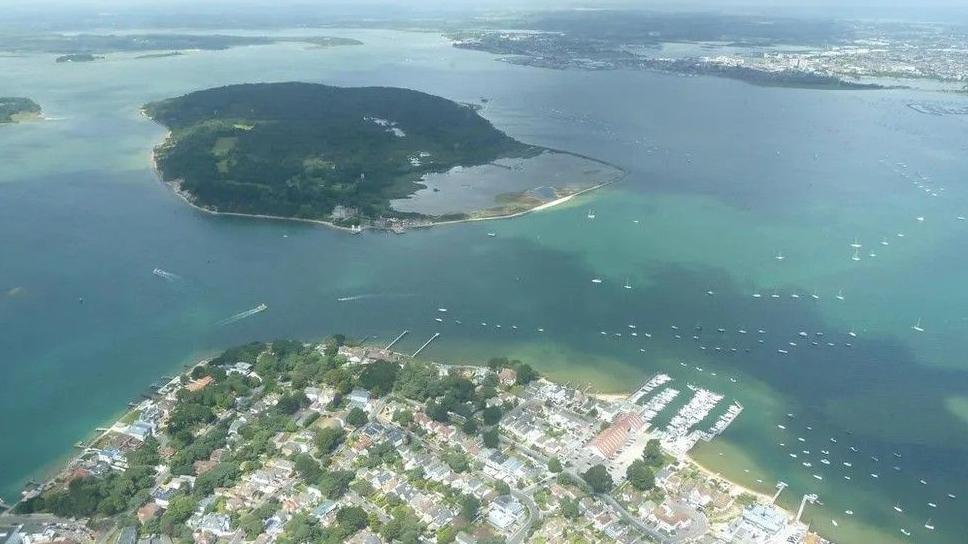
The ospreys were introduced to Poole Harbour in 2017
A month later two chicks were ringed by conservationists and shortly afterwards one of them - known as 5H1 - fledged from the nest before returning two years later. The other was killed by a goshawk.
However, the parents have successfully bred each year. The newest arrivals hatched in May.
Commenting on the latest developments, Birds of Poole Harbour said: "We have a fledging... well, one and a half fledglings.
"Our eldest osprey chick 5R0 took flight for the first time. It had been building for a couple of days, but with no pre-warning, he just upped and left this morning, and flew to a nearby tree.
"Then, just over an hour later at 11:14, sibling 5H2 also took to the air, but only made it as far as the perch that's above the main camera."
Allow YouTube content?
This article contains content provided by Google YouTube. We ask for your permission before anything is loaded, as they may be using cookies and other technologies. You may want to read Google’s cookie policy, external and privacy policy, external before accepting. To view this content choose ‘accept and continue’.
The conservation charity said all four were back in the nest within an hour when a fish was delivered.
"But now that both have left the nest for a period of time, their courage and desire to spend time on the wing will grow each day, and we’ll start to see less and less of them on the nest," it said.
"This coming week will probably see all four fledge, and the comings and goings to the nest will mainly be to sleep and to get fed."
The fish-eating birds of prey historically bred across the British Isles but populations drastically declined in the Middle Ages as they were persecuted to protect livestock.
In England in the 1840s their numbers had reduced and they were no longer considered a breeding bird.
In 2017, Birds of Poole Harbour and the Roy Dennis Wildlife Foundation began the five-year "translocation" scheme, which involved transferring six-week-old chicks from sustainable populations in Scotland to Poole Harbour.
Follow BBC South on Facebook, external, Twitter, external, or Instagram, external. Send your story ideas to south.newsonline@bbc.co.uk, external.
- Published16 May 2024
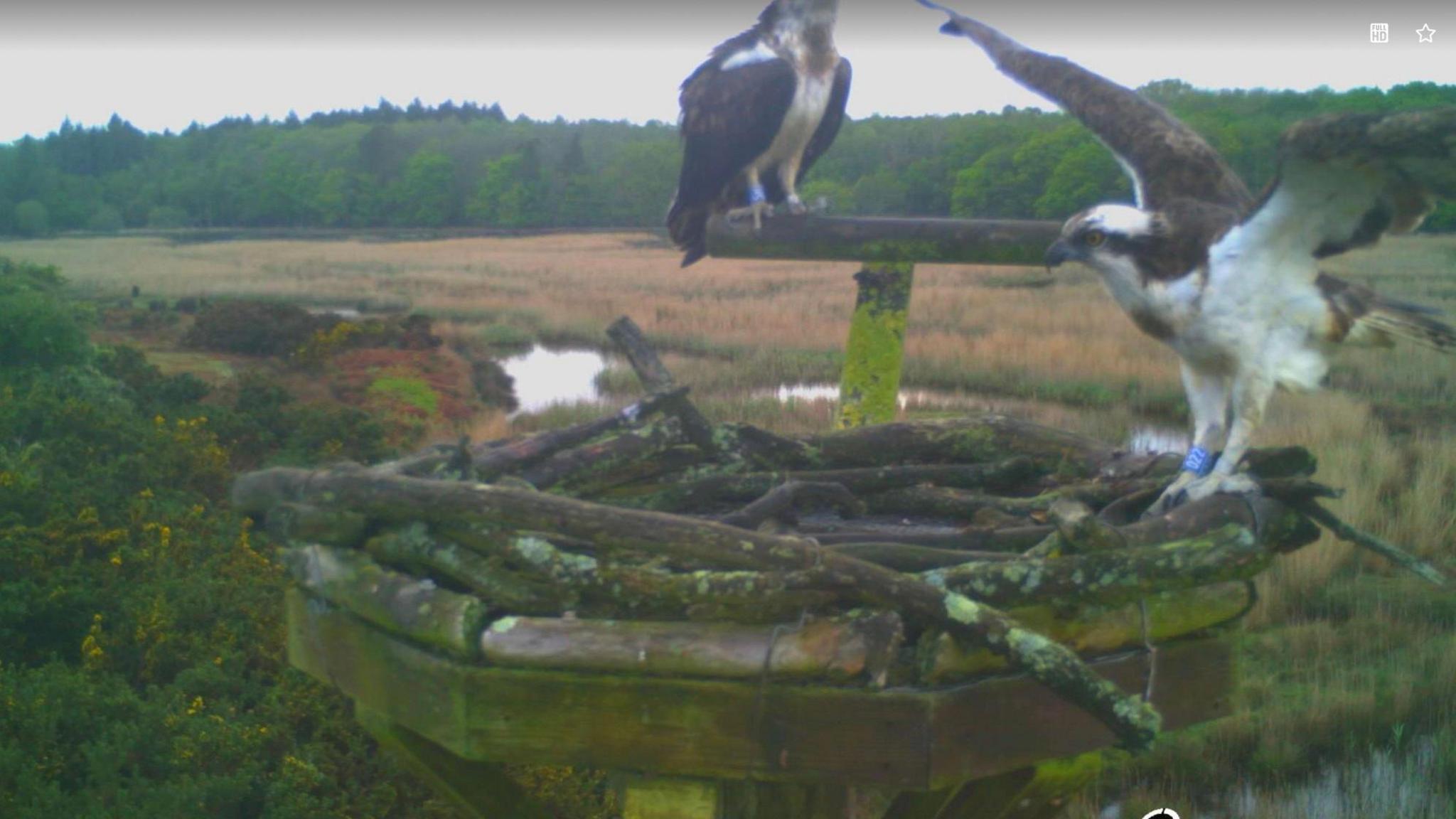
- Published5 July 2022
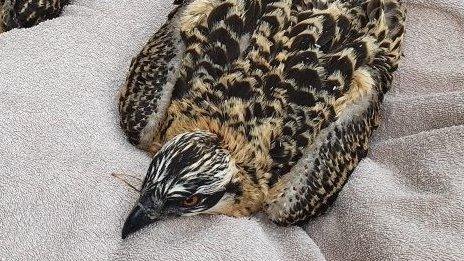
- Published3 June 2022
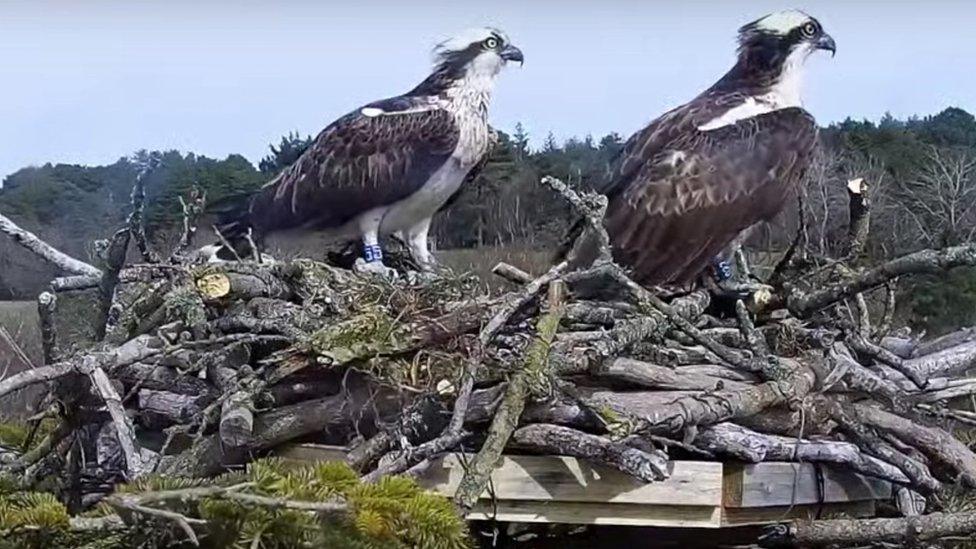
- Published29 April 2022

- Published25 April 2022

- Published20 June 2017
